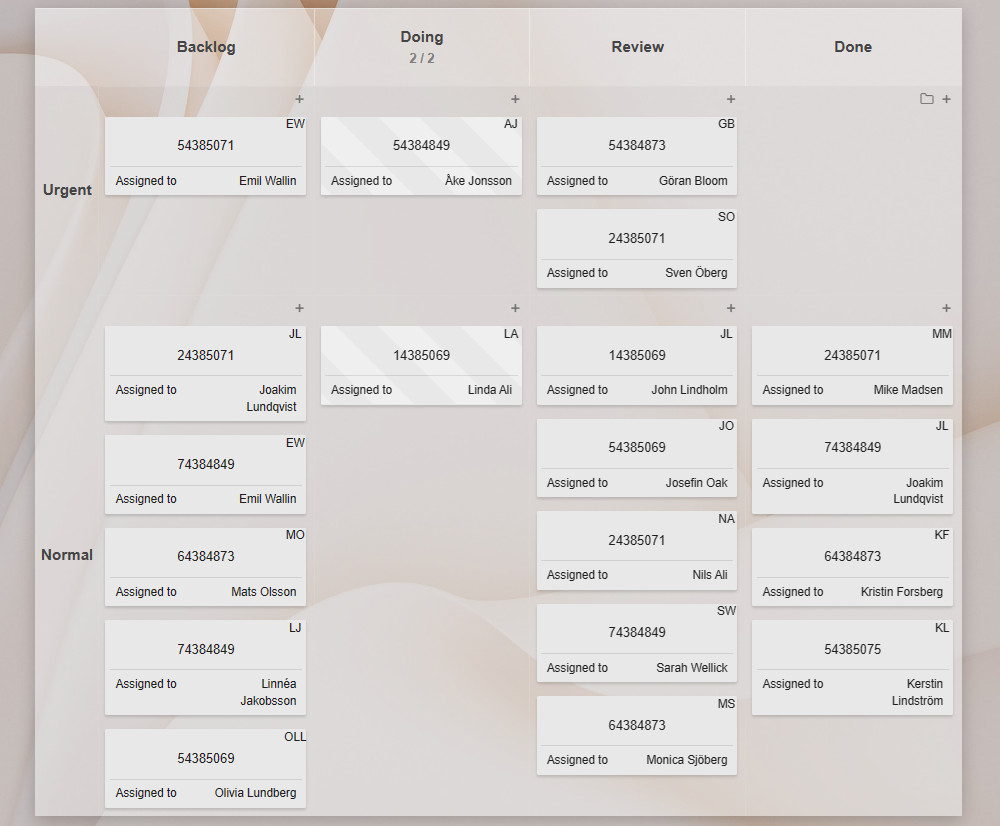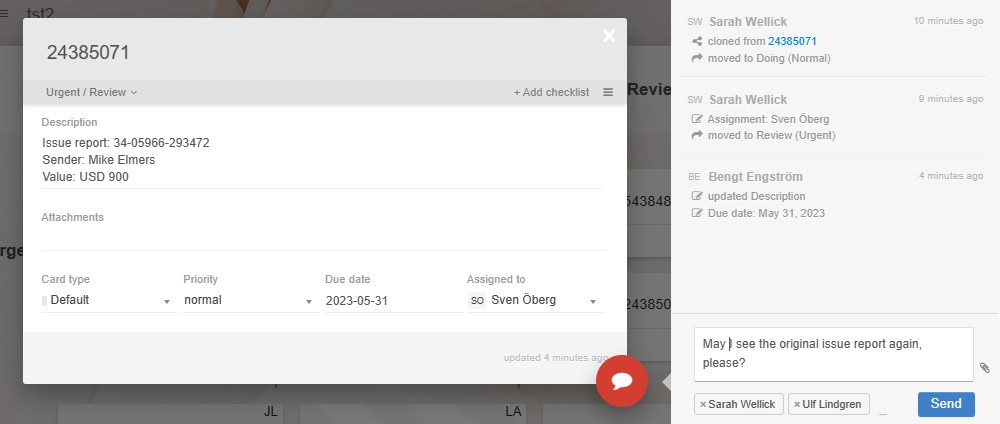Blog
Creating a Culture of Accountability: Higher Productivity Through Responsibility22 May 2023
Experienced managers already know that the best worker is the one that keeps themselves in check and requires no oversight. And while they exist, they probably aren't a majority. Chances are, the self-sustaining employee group has only been getting smaller since the remote work rise in recent years.

Research shows that fostering a culture of accountability within your team is paramount to driving productivity and achieving success. Answerability at work means taking ownership of one's actions and outcomes, standing for results, and ensuring the fulfillment of all commitments. When ingrained in the team culture, accountability sets the stage for higher productivity, better collaboration, and a heightened sense of responsibility. Let us explore various strategies to create a culture of accountability and consider its benefits for your organization.
Influencing the culture
Let's first pause on the concept of team culture. Team culture encompasses the shared values, beliefs, norms, and behaviors that shape the collective group identity. As you can imagine, a culture does not simply happen. For a new trait, like responsibility for one's tasks and work outcomes, to get introduced into an existing culture, you first need to force it in.
A clever way to introduce accountability is to start on the other end of it: at employee growth. If you were to treat an employee's failure as not just that, but were to create an environment of trust, in which the employee could embrace the failure as a good reason to learn something new (and do a better job next time round) - wouldn't that be promoting accountability from the inside-out? Sure, there will be instances where that does not work, or a specific person can't go any further in a given area, but that does not mean they cannot switch approaches, try a different tool for the job, or even switch roles with someone else.
The point is, if you're looking to create a culture of any kind, it will take an active effort on the whole company's part.
Delineating responsibilities
To foster accountability, clearly define everyone's roles and the extent of their responsibilities. In large organizations where the cogs of decision-making are all intertwined, doing this isn't easy. That's why you need to be highly specific when defining the responsibilities. Delineating roles will eliminate confusion and ambiguity, ensuring that each team member understands their given tasks, deliverables, and the standards they are to meet. Setting expectations and providing guidelines empowers individuals to take ownership of their work and contribute to the team's success.
The other element of role definition, which will play to the total team productivity enhancement, is letting the team know how their role fits in with everyone else's. How the goal the individual is working to achieve combines with the broader aim of the department. Presenting how individual responsibilities fit into the larger objective allows the team to work on their individual and shared responsibilities.
One of the simplest ways to achieve it is to display the departmental process as a whole for all the members to see. Parts of the broad process will be the individual assignments, with strictly defined task start and stop points.

Sharing data and insight
Connected to the notion of giving everyone access to the broader process path is sharing access to all information. Transparency and open communication regarding performance metrics, project updates, and relevant information promotes a sense of shared responsibility. Yes, different team members will be responsible for various work elements, but - since they're working towards a common goal - when something changes, chances are, it impacts them all. That's why it will pay to give the team a way to easily and quickly communicate changes. Rather than relying on memos or meetings, the simplest solution is to let the team communicate seamlessly through their process and task visualization tool.

Review regularly, but never coarsely
To make the team accountable, you need to verify their actions. But try not to focus solely on checking whether the task got done. While that is the main objective, it's equally important to gain the employee's feedback on why something has gone a particular way. It may be an opportunity to learn about a potential flaw in your process, of inadequate training or tooling, and only lastly, of a temporarily irresponsible team member. By providing constructive feedback and guidance, you can help individuals develop and grow, while reinforcing the importance of accountability. Reviews like this should be approached with a supportive and developmental mindset, encouraging learning and improvement rather than solely focusing on reprimanding shortcomings.

Team accountability benefits
Supporting team accountability offers several advantages for both individuals and the organization. When team members consistently deliver on their commitments, they build trust, which enhances their collaboration and teamwork. Moreover, a culture of accountability promotes a sense of empowerment, as individuals are encouraged to take the initiative, make decisions, and contribute to the team's success. Such heightened engagement leads to higher job satisfaction and motivation among team members, which, in turn, positively impacts productivity, overall performance, and - the company culture - what goes round, comes round!
Increasing accountability within the team directly contributes to improved productivity. When team members take ownership of their tasks and are answerable for the results, they are more likely to demonstrate commitment and follow through on their promises. Accountability drives individuals to set higher standards for themselves, meet deadlines, and deliver quality work.
Sign up for a 14-day free trial
to test all the features.
Sign up now and see how we can help
your organization deliver exceptional results.